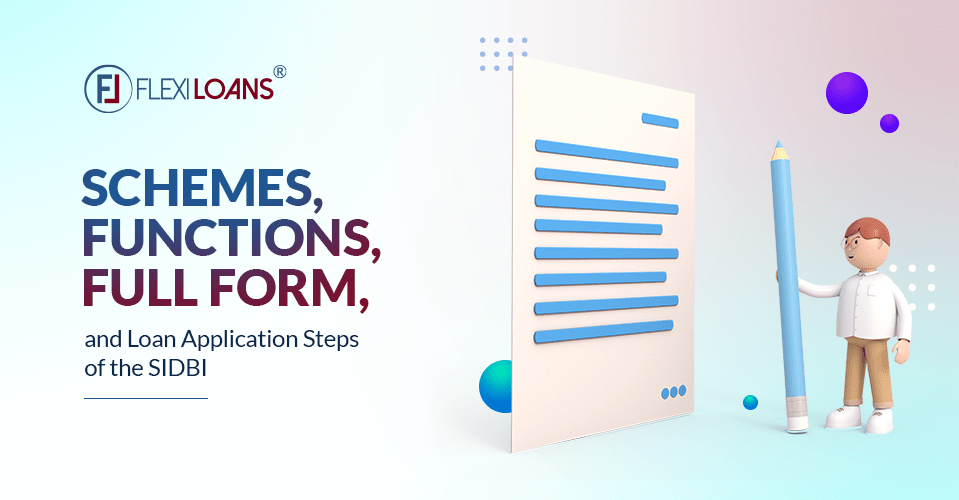Jul 11, 2023
Feb 13, 2026

Micro, small, and medium enterprises (MSMEs play a crucial role in the Indian economy. They contribute significantly to employment generation, innovation, and overall economic growth. However, they often face numerous challenges that hinder their sustainability and growth.
Access to funds continues to be a significant challenge for small businesses in the country. A survey by the Ministry of Micro, Small and Medium Enterprises (M/o MSME) revealed that about 56% of MSMEs lack access to formal credit. Limited financial resources make it difficult for these enterprises to invest in technology upgradation, research and development, and market expansion.
Another significant challenge is the lack of skilled workforce. Many MSMEs struggle to attract and retain skilled employees due to competition from larger companies and inadequate training facilities. This affects their productivity and efficiency.
Infrastructure deficiencies also pose challenges for small companies. Furthermore, inadequate transportation facilities, power shortages, and limited access to industrial parks or specialised zones impede their operations and increase costs. SIDBI came into existence to address these challenges and is playing a pivotal role in the economy.
What is SIDBI?
Small Industries Development Bank of India, the full form of SIDBI, is the principal financial institution for developing, promoting, and financing the country’s MSME sector. The government established the bank on April 2 1990 as a wholly-owned subsidiary of Industrial Development Bank of India. SIDBI delinked from IDBI on March 27 2000 and has headquarters in Lucknow and offices all over the country.
SIDBI’s mission is to facilitate and strengthen credit flow to firms as well as address financial and developmental gaps in the MSME ecosystem. One of the key objectives of SIDBI is to establish itself as a unified platform that addresses the developmental and economic requirements of the MSME sector, aiming to strengthen it, foster vitality, and enhance its global competitiveness.
To date, the bank has supported more than 450 lakh enterprises, created more than 1,200 lakh jobs, and contributed more than 7% to the country’s GDP.
SIDBI Functions and Objectives
The bank performs various functions to fulfil its mission. These include:
- Promotion and Development: SIDBI promotes and develops the MSME sector by providing non-financial assistance. These include technology upgradation and marketing support, as well as the development of skills, enterprises, and clusters. It also undertakes research and advocacy activities to create a conducive policy environment for MSMEs.
- Venture Capital Funds: The bank supports entrepreneurship and innovation by investing in venture capital funds. These funds finance emerging startups in various sectors. It also manages certain government schemes that provide equity support to startups.
- Direct Financing: SIDBI directly finances MSMEs by offering innovative and customised lending products. These products address the specific needs and gaps of MSMEs. Some of the direct finance products provided include service sector financing, receivables support, risk capital, and sustainable funding.
- Indirect Financing: The bank provides indirect financing to MSMEs by offering refinancing for banks, financial institutions, microfinance institutions, and fintechs that lend to MSMEs. This helps to increase the availability and affordability of credit for MSMEs.
- Facilitation: Another SIDBI function involves facilitating the MSME sector by coordinating with various stakeholders such as government ministries, regulators, industry associations, academic institutions, and other financial institutions. The bank also serves as a nodal or implementing agency for various government schemes that benefit MSMEs.
- Green Environment: SIDBI aims to support national plans on climate change. The bank contributes to mitigating greenhouse gas emissions and adaptation to climate change impacts by promoting projects based on renewable energy, green financing, waste management, and resource efficiency among MSMEs. It also implements various schemes and projects under the National Action Plan on Climate Change.
SIDBI Schemes Involving Direct Financing
Under direct financing, the bank offers the following 15 schemes:
1. Express 2.0
This SIDBI scheme aims to offer a swift approval process through an automated platform for MSMEs seeking term loans. It is exclusively for new customers in the manufacturing and service sectors that wish to acquire machinery or equipment. The loan amount is up to Rs. 1 crore, and the tenure is up to five years. The interest rate links to the Marginal Cost of Funds Based Lending Rate (MCLR).
Eligibility Criteria:
- You must possess Udyam and GST registrations.
- Your business must have a minimum operational history of three years.
2. SAATH
SAATH stands for SIDBI Assistance & Aid for Thematic Support to MSMEs promoted by SC/STs. This scheme offers loan assistance on relatively softer terms for establishing new or greenfield units, or expanding or modernising existing units. The loan amount ranges from Rs. 25 lakhs to Rs. 300 lakhs. Under this scheme, SIDBI bears 50% of the credit guarantee fees. In addition, SAATH has nil prepayment charges and is well-known for quick disbursement.
Eligibility Criteria:
- The promoters of the firm must belong to the SC/ST category and must possess a minimum stake of 51% in the company.
- The applying firm should not have any default record with banks and financial institutions.
- The company must be registered under the provisions of the MSME Act.
3. ARJANA
This SIDBI scheme is for MSMEs operating in the service and manufacturing sectors with women entrepreneurs. This loan’s minimum and maximum disbursement rates are Rs. 25 lakhs and Rs. 300 lakhs respectively.
Eligibility Criteria:
- Business registration must be as per the MSME Act.
- The woman entrepreneur should have a 51% stake at minimum in the company.
- The company must clear a due diligence check conducted by Credit Information Bureau India Limited (CIBIL).
- The company must not have any default record with banks and financial institutions.
4. STEP
STEP stands for SIDBI Term Loan to Enhance Production of MSMEs. This facility assists in helping a company meet its working capital requirements and ensuring it can easily execute confirmed orders. This scheme is also designed to help augment the net working capital (NWC) of such firms. STEP offers loans of up to Rs. 200 lakhs to new customers and up to Rs. 300 lakhs to existing customers.
STEP is well-known for its quick sanctioning, usually completed within two days, as well as its zero processing fees. The repayment tenure is three years, which includes a six-month moratorium period.
Eligibility Criteria:
- New applicants must have been operating their business for at least three years while existing customers must have a minimum operational history of two years.
- Micro enterprises applying for the loan must demonstrate a profit in the last two financial years. On the other hand, existing customers should have maintained a profitable business for at least one year.
- There must be no records of debt default.
5. Ubharte Sitaare
This SIDBI scheme targets MSMEs that have the potential to become export champions. The sanctioned funds are accessible for land, building, and advanced machinery investments, ultimately facilitating modernisation, capacity upgrades, and diversification. Under this scheme, the maximum funding available is up to 80% of the original project cost, which means you can classify it as need-based funding. The repayment tenure generally lasts up to six years, which is extendable up to 10 years and includes a moratorium of up to two years.
SIDBI offers this loan without requiring a joint partnership with Export-Import Bank of India (India Exim Bank). Some of the sectors eligible under the Ubharte Sitaare scheme are:
- Chemicals
- Aerospace and defence
- Pharmaceuticals
- Automobiles
- Food processing
- Precision engineering
- IT and Information Technology Enabled Services (ITES)
- Textiles and allied sectors.
Eligibility Criteria:- For new units, the company’s promoters must have sufficient experience in the relevant industry as well as demonstrate major projected revenue from exports. However, for units co-funded by entrepreneurs from reputed institutions such as IIT, IIM, IISc and NIT, sufficient industry experience is not a requirement.
- For existing units, the scheme requires fundamentally strong export-oriented MSMEs with satisfactory financial performances.
- The company should clear a due diligence check conducted by CIBIL.
- The promoters’ stake in the company needs to be 20%, which increases to 30% for greenfield units.
6. STHAPAN
STHAPAN stands for SIDBI Thematic Assistance for Purchase of Capital Assets in New Enterprises. It offers monetary support to greenfield units to assist them in establishing and expanding new units. The funds are available for investment in land and equipment, as well as the construction of new factory buildings.
STHAPAN provides maximum funding of up to Rs. 2,000 lakhs or 75% of the project cost, whichever is lower. The applicable interest rate for the first year is 2.20%-3.50% and links to the repurchase (repo) rate. Subsequently, the rates adjust based on the internal rating. The repayment tenure is seven years, including a moratorium of up to two years.
Eligibility Criteria:
- The MSME should have been in operation for at least five years.
- The firm must have a consistent history of generating profits and maintaining stable sales. The promoters’ contribution to the company should be a minimum of 25%.
- The company must successfully pass the standard diligence check norms by CIBIL, such as the CIBIL MSME Rank (CMR).
7. ARISE
ARISE, which stands for Assistance to Re-Energize Capital Investments by SMEs, offers two types of facilities: foreign currency and regular-term loans. This SIDBI scheme’s maximum loan amount is Rs. 700 lakhs or 80% of the project, whichever is lower. The applicable interest rate ranges from 1.70%-3.00% plus the repo rate from the first year. From the following year onwards, the internal rating system adjusts the rates. The repayment period for ARISE loans is seven years, which includes a two-year moratorium.
Eligibility Criteria:
- The firm must have been operational for at least two years.
- The company’s audited financials must display its cash profits.
- The contribution from the promoter should be at least 25%.
8. STAR
STAR, which stands for SIDBI Term Loan Assistance for Rooftop Solar PV Plants, assists MSMEs in reducing their electricity bills. The minimum and maximum funding available under this SIDBI scheme is Rs. 10 lakhs and Rs. 350 lakhs respectively. STAR offers attractive features such as 100% financing, direct payment to the supplier, and an interest-bearing fixed deposit of 15%-25% of the loan amount. The repayment term for the STAR scheme is 60 months, which includes a moratorium period of 6-12 months.
Eligibility Criteria:
- For new customers, the firm must have a minimum of three years of operational history. However, existing customers only need a minimum of two years of operational history.
- The business must demonstrate a profit for at least two years.
- The proposed capacity should not exceed the connected load level.
- The maximum funding available will be 25% of the company’s net sales.
9. TULIP
TULIP, which stands for Top Up Loan for Immediate Purposes, is a scheme that aims to assist companies in meeting their urgent financial needs. TULIP offers 100% financing, but its availability depends on a 10% fixed deposit (FD) and the extension of this charge. One noteworthy aspect of this product is that it does not require collateral other than the FD. The repayment tenure of this SIDBI scheme is five years, which includes a moratorium of six months.
Eligibility Criteria:
- Since this is a top-up loan, at least 1 year of association with SIDBI is necessary.
- The loan purpose should relate to the same business line.
- The company must demonstrate at least one year of profitability.
10. Speed
SPEED, which is an abbreviation for SIDBI Loan for Purchase of Equipment for Enterprise’s Development, allows new units to purchase machinery from original equipment manufacturers (OEMs) that have signed a memorandum of understanding (MoU) with SIDBI. Existing customers of the bank have the flexibility to make purchases from any OEM.
For new units, the funding assistance provided is 100% of the machinery cost or Rs. 1 crore, whichever amount is lower. On the other hand, existing customers have a higher ceiling of Rs. 2 crores. The repayment tenure for SPEED ranges from two to five years, which includes a moratorium period of up to six months.
Eligibility Criteria:
- The company must have been operational for at least three years.
- The firm must demonstrate cash profits for the previous two years.
11. Speed Plus
This SIDBI scheme aims to assist MSMEs in purchasing machinery directly from OEMs. The funding assistance for new borrowers is set at 100% loan-to-value of the machinery cost as long as the purchase amount is up to Rs. 2 crores. For existing customers, this amount increases to Rs. 3 crores. However, the actual disbursements may be lower if the applying company has a lower repayment capacity.
The interest rate for Speed Plus depends on the MCLR. The repayment tenure is seven years, including a 6-12 month moratorium.
Eligibility Criteria:
- The applying unit must have been in operation for at least five years.
- The firm must be able to demonstrate cash profits for the past three years.
- The firm’s minimum net sales for the past two years should amount to Rs. 5 crores, without any operating loss.
12. PRATHAM
PRATHAM stands for Priority Assistance to MSMEs Based on Hybrid or Alternate Security Model. MSMEs can choose to opt for this SIDBI scheme to purchase machinery, buy ancillary equipment, and refurbish machines. Additionally, ineligible machines under the Speed Plus and Speed schemes also qualify under the PRATHAM scheme.
The maximum funding available is 10% of the machinery cost or Rs. 300 lakhs, whichever is lower. However, this funding amount depends on 30-40% of the FD provided. The interest rate is MCLR-linked and the repayment tenure is five years, including a moratorium period of 6-12 months.
Eligibility Criteria:
- The MSME must have been operational for at least three years.
- The firm should have recorded cash or net profits in the previous three years.
13. Working Capital
This SIDBI scheme is exclusively available to MSMEs with an outstanding term loan with the bank or who have submitted a proposal to obtain a term loan. The loan offers firms an immediate cash infusion to support their business operations, enabling them to fulfil their day-to-day expenses.
Eligibility Criteria:
- The firm must have a current ratio of 1.25.
- The overall asset coverage ratio requirement is set at 1.3 for existing units and 1.4 for new projects.
- There should be a minimum interest coverage ratio of 1.5.
14. SMILE
SMILE stands for SIDBI Make in India Soft Loan Fund for Micro, Small and Medium Enterprises. This scheme provides financial assistance to 25 target sectors, enabling them to invest in growth opportunities. These sectors include aviation, construction, railways, pharmaceuticals, textiles and garments, and roads and highways.
Under the SMILE scheme, funds are available in two types; the first is a soft loan, provided in the form of quasi-equity. The second type is a term loan, which is available on relatively soft terms.
The minimum funding available under the soft loan is Rs. 10 lakhs for equipment purchase and Rs. 25 lakhs for other purposes. In contrast, for the term loan, the minimum funding for new customers is Rs. 50 lakhs, while for existing customers, it is Rs. 25 lakhs.
The repayment tenure for the SMILE scheme is 10 years, which includes a 36-month moratorium period. Furthermore, for the soft loan, the interest rate for the first three years ranges from 9.15% to 9.35%, and for term loans, it ranges from 9.45% to 9.95%. However, starting from the fourth year, the interest rate ranges from 11.70% to 12.70%, which can be a floating or fixed rate.
Eligibility Criteria:
- The firm must have a minimum promoter contribution of 15% subject to a maximum debt-to-equity ratio (D/E ratio) of 3:1.
15. Partnership with OEMs
This SIDBI scheme serves as a comprehensive solution for MSMEs seeking to purchase plants and machinery directly from OEMs, and is well-known for its simplified credit disbursement process. Typically, the scheme offers loans of up to Rs. 100 lakhs but this amount can increase under special circumstances and specific guidelines from the bank.
The repayment tenure for such loans extends up to 60 months, including the moratorium period. The interest rate applied to the funding follows the guidelines of the SIDBI SMILE scheme.
Eligibility Criteria:
- The firm must have been in operation for at least three years.
- The company must have satisfactory financial statements.
SIDBI Schemes Involving Indirect Financing
Under indirect financing, the bank offers the following schemes:
1. Refinance Scheme for Micro and Small Enterprises (RMSE XII)
This SIDBI scheme provides refinance assistance to prime lending institutions (PLIs) for lending to micro and small enterprises (MSEs) at a rate linked to the 10-year Indian government bond yield. The scheme has two variants: RMSE XII-Regular and RMSE XII-ICDD.
Under RMSE XII, the loan amount depends on the applying company’s repayment capacity, and the repayment period can be up to five years. The scheme covers various activities such as manufacturing, services and trading. The eligibility criteria for MSEs are three years of operational history and demonstrated profitability in the past two years.
2. SIDBI Revolving Fund for TIFAC
This fund provides refinancing assistance to PLIs when lending to MSMEs for technology upgradation under the Technology Information Forecasting and Assessment Council (TIFAC) programme. Under this, the government aims to promote innovation and research in MSMEs by facilitating their access to technology from diverse sources such as research institutions, universities, and more.
The funding can go up to Rs. 100 lakhs per unit and the repayment period is six years (including a moratorium) starting from the project completion date. The interest rate on the funding has a cap of 5% per annum.
3. Receivable Finance Scheme
This SIDBI scheme provides refinancing assistance to PLIs for the discounting or factoring of receivables for MSMEs. It aims to enhance MSMEs’ liquidity and cash flow by enabling them to sell their invoices or bills at a discounted rate to PLIs.
The scheme’s funding criteria depend on the needs of the MSMEs. In the case of large purchase corporations, the funding limit can be Rs. 50 crores at most. The approved limits are valid for one year.
4. Refinance Assistance to MSMEs for the Purpose of Export (RAMPE)
This SIDBI scheme provides refinancing assistance to PLIs for lending at attractive interest rates to MSMEs engaged in export activities. The funding is subject to an exposure limit set by SIDBI for each bank and various other parameters. The repayment period can extend up to five years. The scheme covers both pre-shipment and post-shipment finance for exports.
Disclaimer: The interest rates for both direct and indirect SIDBI financing products are subject to change. Please refer to the bank’s website before applying for any of these schemes.
How to Apply for a SIDBI Loan
Here are the steps involved in the SIDBI loan application process:
- Visit the bank’s official website at SIDBI loan application
- Under the ‘Direct Loans’ option, you can find various SIDBI schemes
- Click on ‘Apply Now’ under the Preferred Loan Product box
- Click on ‘Registration Form’
- Enter your enterprise’s name, email address, and the mobile number registered with Udyam, and create a password
- Log in again on the SIDBI portal, choose the relevant scheme, and enter the required loan amount
- Share basic details such as the business address, district, and pin code
- SIDBI officials will then send a confirmation mail to the email address provided. Once the applicant agrees, the next steps will involve application evaluation and disbursement.
Documents Required for SIDBI Schemes
The list of documents necessary for SIDBI loan processing varies for each scheme. However, the following are the most common documents required:
- Application form; this must be duly filled and signed by the applicant
- KYC documents of the applicant and co-applicants
- Business profile and project report
- Audited financial statements for the past three years
- Provisional financial statements for the current year
- Bank statements for the past six months
- Copy of the Udyog Aadhaar Memorandum (UAM)
- Copy of the GST registration certificate (if applicable)
- Copy of consent for establishment from the Pollution Control Board (if applicable)
- Copy of sanction letters from other lenders (if any)
- Proforma invoice or quotation of items to MSMEs that wish to purchase
- Any other document as required by SIDBI.
Benefits of SIDBI Schemes
SIDBI schemes offer several benefits. These include:
- Customised Products: SIDBI understands that different MSMEs have varying needs and challenges. Thus, the bank offers customised loans that suit your business requirements. You can choose from various loan products that cater to your specific purpose, such as purchasing equipment, expanding production, upgrading technology, developing new products, and more. You can also avail of loans for working capital or receivables financing.
- Attractive Interest Rates: SIDBI offers loans at attractive interest rates that are lower than market rates. This is because the bank has tie-ups with various lenders and foreign financial institutions that provide funds at discounted rates. SIDBI also passes on the benefits of government subsidies and schemes to MSMEs.
- Collateral-Free Loans: Some SIDBI loans are available without collateral or security, and provide funding of up to Rs. 1 crore. This makes it easier for MSMEs to access finance without worrying about pledging their assets. SIDBI also covers some of its loan products under the Credit Guarantee Scheme.
- No Tempering of Company Ownership: SIDBI does not interfere with the ownership or management of your company when you take a loan. You retain full control over your business decisions and operations and the bank only monitors the performance and repayment of your loan.
- Transparent Procedures: SIDBI follows a transparent and simple procedure for loan application and sanction. You can apply online through its portal or mobile app and upload the required documents. The bank evaluates your loan proposal based on factors such as your credit score, business profile, and financial statements. You can enjoy the convenience of monitoring your loan application status online.
- Special Assistance: This SIDBI function includes mentoring, capacity building, and advisory services to enhance business skills, technology adoption, and market access. The non-financial aid supports project preparation, feasibility studies, market research, and skill development programmes. These initiatives empower small businesses with the knowledge, tools, and expertise to navigate challenges.
- Flexible/Customised MSME Business Loans: Startups and small-scale enterprises sometimes struggle to get adequate financing for their operations. SIDBI provides numerous lending programmes to their consumers. If a person has a specific need, the institution can issue customised MSME loans for businesses based on the needs of the business. This personalised strategy assists small firms in obtaining loans for business and financing as needed.
- Favourable Interest Rates: The MSME industry is hampered by high lending rates. SIDBI makes it simple for businesses to obtain working capital loans by offering low-interest rates. SIDBI is able to maintain low-interest rates because of partnerships with a range of international financial organisations.
- SIDBI Loan Without Collateral: Banks typically provide business loans in exchange for collateral. SIDBI, on the other hand, offers business loans without collateral to its borrowers, and MSMEs can borrow up to Rs. 1 crore without having to present collateral.
- Subsidies from the government: Whenever the government chooses to subsidise MSMEs, SIDBI provides such business loans and working capital business loan programmes to entrepreneurs at a lower rate of interest than typical and with simple terms and conditions. You can use the business loan EMI calculator online to check the monthly interests/EMIs you need to pay on your business loans.
- Procedure Transparency: SIDBI’s loan application and approval processes are straightforward, with no added charges. Interest rates and other costs are disclosed to lenders in advance to ensure a high degree of transparency in the lending process.
- Particular Assistance: SIDBI bank offers loans to MSMEs through several SIDBI programs and aids fledgling enterprises and entrepreneurs by giving essential business insights and coaching. During the MSME business loan application process, their managers assist company owners in making the best selections.
- There is no tampering with company ownership: To get financing for their firm, business owners may have to give up a portion of their shareholding. SIDBI protects business owners’ interests by providing financing and loans without impacting the ownership of the company.
Conclusion
Consumers can request business loans and financial help on SIDBI’s website. A business owner may ask for a loan via the online application procedure with only a few clicks. A person must first enroll on the SIDBI official site with login details and then pick the plan and loan amount required. Finally, personal information must be entered to finish the online application. SIDBI personnel give business loans to MSMEs after assessing the application and fulfilling the requirements. This monetary institution’s loans and credit play a significant part in the nation’s progress and development of this industry.
FAQs
The full form of SIDBI is Small Industries Development Bank of India. It is a financial institution established in 1990 under an act of parliament, and its primary aim is to promote, finance, and develop the micro, small, and medium enterprise (MSME) sector in the country.
The SIDBI institution does not accept loans based on the credit record of the small businessmen. Its principal goal is to provide financial assistance to small company units so that they may expand their operations without limits.
Entrepreneurs must produce address proof, identification evidence, an Aadhaar card, a pan card, and other business-related documentation.
A micro, small, or medium firm in India can apply for a direct loan from SIDBI. The agency offers a variety of appealing financing packages to both new and experienced business owners.
The Micro Units Development and Refinance Agency (MUDRA) is a SIDBI subsidiary that funds banks and NBFCs to lend to micro units under the Pradhan Mantri Mudra Yojana (PMMY) scheme. The primary objective of MUDRA is to offer loans of up to Rs. 10 lakhs to micro-enterprises operating in the manufacturing, trading, and service sectors. The scheme is further categorised into three loans: Shishu, Kishore, and Tarun.
SIDBI offers a range of loan products tailored to the specific needs of MSMEs. This includes term loans for fixed asset acquisition, working capital finance, equipment finance, technology upgradation loans, and loans for export-oriented units. The bank also provides loans for startups and innovative ventures.
SIDBI’s most important subsidiaries are:
1. Micro Units Development and Refinance Agency (MUDRA Bank)
2. India SME Technology Services Limited (ISTSL)
3. India SME Asset Reconstruction Company (ISARC)
4. Acuité Ratings and Research Limited
5. Receivables Exchange of India Limited (RXIL)
6. Credit Guarantee Fund Trust for Micro and Small Enterprises (CGTMSE).
The Reserve Bank of India (RBI) regulates SIDBI to ensure it complies with the regulatory guidelines and norms in the financial sector.
Yes, SIDBI provides support for debt restructuring and rehabilitation of MSMEs. It offers schemes and initiatives to help such firms overcome financial difficulties and revive their businesses.
The interest rates offered by SIDBI may vary based on the scheme and prevailing market conditions. These rates are typically competitive and conducive to the needs of small businesses.
For more information about SIDBI loan schemes, you can visit the bank’s official website, which provides detailed information about various loan schemes, eligibility criteria, and application procedures. You can also get information through your local SIDBI office.







